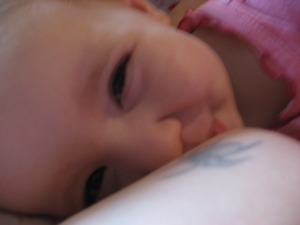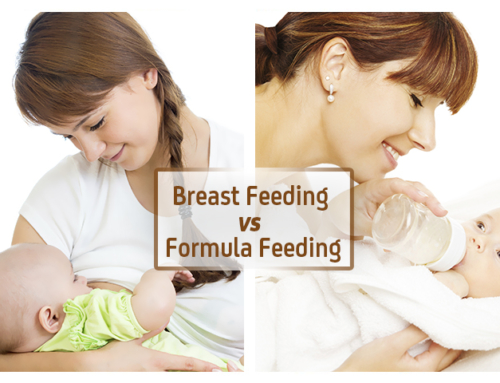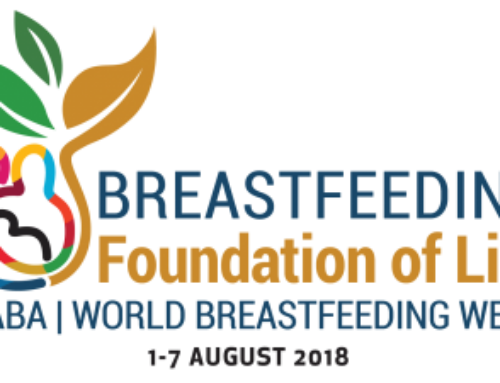 We all know of the usual booby traps: having to return to work early, undiagnosed tongue ties and food sensitivies/intolerances/allergies, birth interventions, and unsupportive partners and family. We know how detrimental they are for women who want to breastfeed. However, I want to talk about ones that are rarely spoken of yet affect a sizeable number of women: Psychological and physical sensitivity or aversions.
We all know of the usual booby traps: having to return to work early, undiagnosed tongue ties and food sensitivies/intolerances/allergies, birth interventions, and unsupportive partners and family. We know how detrimental they are for women who want to breastfeed. However, I want to talk about ones that are rarely spoken of yet affect a sizeable number of women: Psychological and physical sensitivity or aversions.
For some women, the experience of breastfeeding is horrific. It’s not one of joy or happiness, but rather pain, anxiety, and stress. I can acknowledge that this is an area that has allowed me to have a wonderful nursing experience: I love cuddling with my daughter and only occasionally do I feel touched out or too sensitive to her tweaking or playing with my nipples. As such, breastfeeding has been an incredibly positive experience for me that has allowed me to go forward, but not all women feel the same and we need to start discussing it.
Physical Sensitivity
I have had messages from moms who described the act of breastfeeding as so physically uncomfortable that they felt sick, that they wanted to crawl out of their skin. For these women, the act that many of us see as wonderful, or even that many of us tolerate, is like a form of torture and when you have a newborn who feeds round the clock, I’m hope you can imagine how difficult that can become. For some women, it may be an issue of latch and this is something that women should look into if they are wanting to breastfeed, but finding it very physically aversive. A bad latch can make it not only painful, but almost unbearable.
When I think of these women, I can’t help but also think of some of our babies who are unbelievably sensitive to various stimuli, including touch. My daughter is on the upper-side of sensitive, but nothing like the children in some of the families I have met or emailed with or had questions from. Some of these children can barely stand touch. Premature babies have skin so sensitive that too much touch causes heart decelerations and they need breaks from their kangaroo care. We accept this for our children and do everything to respect the fact that touch is very powerful and negative touch can have profound impact on our lives, yet somewhere we’ve decided mothers who are this sensitive are exempt from this compassion?
Psychological Sensitivity
For some women, they have a psychological sensitivity around their breasts. Physically it may not be sensitive in the way it is for those with sensory issues during breastfeeding, but the outcomes can be the same with women feeling ill, stress, anxiety, and even depression. Although it’s not exclusive, often this type of psychological sensitivity comes from women who have been sexually abused, and the effects of their abuse have led to their inability to handle the type of invasiveness and touch that breastfeeding involves.
There are a few things we must consider when we think of the woman who has undergone trauma and struggles with breastfeeding as a result (well, more than a few, but I will focus on a few here). First, the woman may not be open about this being her reason not to breastfeed. After all, how open are any of us about the traumas we’ve endured in our lives? Often we keep them very hidden, revealed only to those we absolutely trust and feel comfortable with. So if you are out in public and a woman just says she “just decided to use formula” or “couldn’t breastfeed”, chances are she’s telling you something at face value, but there will be a small percentage of these people who simply don’t feel like opening up to someone they don’t know or don’t know well enough about their history and the trauma involved. (Perhaps it would be good if they did as it might shut up some nosey individuals, but that’s a topic for another day).
Second, a lot of people assume that if a woman is able to have sex she must be “over” whatever sexual trauma she may have endured. The assumption is therefore that if a woman is pregnant, she most likely had sex (though not necessarily given artificial means of getting pregnant). However, barring the aforementioned problem with this though (i.e., may not have had sex), it’s just simply not true. Many individuals (men and women) who were abused work hard to be able to be intimate with partners but that does not extend outside that specific relationship. Additionally, many may find they can be sexually active with certain people, but certain touches, stimulations, etc. evoke memories and anxiety from abuse that they do not have control over (at least at that moment). One of the difficult things for people who suffer from any trauma, but particularly post-traumatic stress disorder (which is common in victims of abuse), is that it can be some of the smallest things that send them back to the trauma: smells, very specific touches, sounds, etc. For some women, breastfeeding can be a trigger even if sex is not.
Third, and finally, if it’s not sexual abuse, we can be pretty sure there’s some event or series of events that have led to breastfeeding causing such strong aversions (it may be other violence or even a medical condition; if you have negative feelings surrounding breastfeeding at the time of feeding and these feelings pass after letdown, please looking into Dysphoric Milk Ejection Reflex, a condition which causes women to experience negative emotions just prior to milk ejection and is treatable). We don’t need to know what it is that has caused this and we don’t need to hound a person about it. Our lives are made up of millions of events, all of which will shape us in one way or another, some more so than others, and some so negatively they have an everlasting impact. Of course we would hope people find someone to talk to and work through these events, but not everyone does, and even those that may eventually understand the effects of their past and be able to overcome may not do so in time to breastfeed. The risk for these women isn’t just reliving experiences that caused trauma – whatever they were – but falling into post-partum depression which is not healthy for any woman or baby. We have to remember this when we start questioning the validity of this type of aversion.
What to Do?
Unfortunately, we can often hear that moms should just “get over it” to do what is best for their baby. Here is where I struggle: How can we ask moms to put themselves in harm’s way (because, yes, negative touch and flashbacks and all of this IS harm)? How can we believe this is best for a family? How can we think that a child would benefit from a mother who approaches feeding with stress and resentment? Even at the physiological level, we know babies pick up mom’s emotions very clearly during this period and is this type of stress what we want babies to experience?
I have read people comment that they were one of these people and still breastfed and so everyone should be able to. I hope I don’t need to point out how ridiculous it is to assume that our individual successes should be applicable to everyone. Why one woman overcomes a particular booby trap has a lot to do with her environment, her support system, her upbringing, her temperament, etc. Just thinking of my own experiences as a mom who has been nursing for over 3 ½ years and is still going strong, I am well aware that most women did not grow up witnessing two siblings nursing until they were near 4 years of age. That it was so normal for me to see that that when I was pregnant, it wasn’t even a second thought that I would nurse until my child decided to stop (which she still hasn’t). But I was the only person in my prenatal breastfeeding class (at a very crunchy-esque place that predominantly serves midwifery patients) who had that attitude. The only one. I don’t know what happened to others in that group – probably nothing for most of them – but I have no basis to tell anyone to “get over” anything, regardless of my own situation. The only person I can tell to “get over” something is myself.
So what are these moms to do? Just switch to formula? For some, that will be the answer, but I hope that with understanding we can start to find ways to help these moms if they want to breastfeed. One mom mentioned that nipple shields helped reduce the sensation for her and allowed some nursing. Others have mentioned getting donor milk instead of formula; knowing that they can’t handle breastfeeding themselves, they opt for the next best thing: Breast milk from another mother. As for the rest of us, we can offer compassion and fight for alternatives to formula. We don’t know what another mother’s journey has been and even if we’ve experienced trauma or pain, we have to accept our bit of privilege in being able to overcome it, because not everyone will “heal” to the same degree as us. Compassion can also be offering an ear to help someone simply talk about their experiences as we know that has the power to heal as well. HELPING is what we need to be looking to do, and if you want to help all babies get the gift of breast milk, fight for wider access to donor milk via milk banks and peer-to-peer sharing networks. Focus on education about breastfeeding and breast milk and help make formula a true third choice, left for moms who desire it, not moms who need it. That is what we can and should do for these mothers and babies.
***
If you are in need of individualized parenting help, I offer services via email, Skype, and phone on a variety of parenting topics. You can find out more here.






This was a very compassionate piece. I wonder if exclusive pumping might work for some individuals. The mechanical nature of the pump might not trigger the same kind of response to touch, which would be a good thing in this case.
I think the new and very intimate relationship with the baby may also help to heal in time.
As for super sensitive people, I may be one of those. I hate examinations including the dentist and things like giving blood always hurt me. Thankfully, I was able to survive the initial rawness of breastfeeding, which improved monumentally by day three.
I think pumping is a great idea for women who can handle it (and for whom the pump works). I do wish we could look into and better understand the factors that allow some women to overcome this aversion whereas others are less able to do so. I believe it’s a hugely important area of research even if it’s not something that affects too many women.
Oh wow. Thank you for writing this. It’s been awhile since I breastfed my daughter. She’s my first and now almost two. I’m still nervous about having another child and this is one of the reasons. Labor was a breeze in comparison. She weened at 14 months. I experienced so much pain. There were times that she would bf for 5 or more hours and I would be in agony. I went to LC and two drs hoping she was tongue tied or something to fix it. What helped me was using a pacifier. I should have used it way earlier and not waited due to nipple confusion scare. That way I would not be the pacifier. I also used a nipple shield the whole time. And when I went to work I did formula part time so I would not be pumping for hours to get a bottle. I could only pump an oz at a time. In all fairness I don’t think breastfeeding was the greatest experience for my dd either. Shes not really the touchy feely cuddly type at all. She has reflux and at two is on an adult dose of meds. She night weened at 4 months (don’t think I’m lucky or anything, she still does not sttn regularly ;)) and when she was done she was done. That was easy and i guess the silver lining to the whole experience.I think the best breastfeeding advice I saw was it doesn’t have to be all or nothing (leaky boob?). That helped me to get to my goal of 12 months. Well those were some of the things that helped me so I wish anyone out there who wants to reach their goal the best of luck and whatever decision you have to make that keeps everyone sane is the best decision. It did get easier as time went by too. I didn’t have the additional trauma of triggers from an assault either. That would have been difficult on top of everything else.
Exclusive pumping is a great way for moms who really want to breastfeed to make a go at doing so..being mindful of Tracy’s comments above too. It is a boatload of work but I know some survivors have felt very dedicated to doing so and exclusive pumping worked for them. It also eliminates the “roving hand” issue which can be very triggering for some survivors.
[…] Breastfeeding Aversions | Evolutionary Parenting | Where History … https://gku.flm.mybluehost.me/evolutionaryparenting.com/We all know of the usual booby traps and how they are detrimental to women who want to breastfeed, but rarely do we talk about breastfeeding aversion as a problem for women who have tried to breastfeed. […]
I’m so glad that you are addressing this issue, Tracy! I think we are hearing of more women who cannot breastfeed or choose not to and that MUST be respected. End of story! Two points:
1) It’s worth mentioning that there are a few other groups of women who aren’t mentioned here but should be as they are ones who might make a similar decision when it comes to breastfeeding:
survivors of intimate partner violence (domestic violence). Sexual abuse (of any kind) isn’t about sex but power so it really comes under the massive umbrella of “intimate partner violence”. FWIW, some women may identify as an IPV survivor and not a SA survivor so it feels important to be inclusive here. Also, women who have struggled with body image issues often have similar aversions and come to cannot/choose not to decision when it comes to breast-feeding.
2) I think it’s worth knowing the “why” behind a reason not to breastfeed. *I* don’t need to know a specific woman’s reason per se but what I mean is that she should know for herself. Childhood sexual abuse, for example, can be repressed and go largely unnoticed for years…until baby latches on for the first time. Or until the woman and her partner take a breastfeeding class. But getting to the reason “why” behind this decision will not only help the woman better come to terms with it herself (and ideally lessen the guilt, etc. that comes from the constant barrage of ‘breast is best’ messaging) but in doing so, will ground her more solidly for any healing work that does need to be done.
Thank you again for this important piece.
Thank you Elizabeth for those amazing points! I was trying to address the inclusiveness in point 3 under the psychological aversion but you phrased it much more eloquently than I 🙂 And you are 100% right about women needing to be aware of the “why” for their own sake and to be able to approach healing (regardless of whether that includes breastfeeding or not). I also hope we can work towards having better systems in place for these survivors to be able to heal as I feel that’s an area in our society that is sadly neglected 🙁
So glad to add some value to this terrific post, Tracy! And gosh yes, we just don’t have any good systems that support survivors in a holistic way that promotes healing, do we? So sad.
I have had a very positive experience with breastfeeding. My son is not 16 months and for the past month or so he has started moving his hands about a lot while breast feeding. Even tho I have no trauma or history whatsoever it still makes me feel extra sensitive and not so great! So I can imagine what it must feel like for some!
Aloka- Oh that roving hand! It can be very disturbing for so many of us. Your LO is too big to be swaddled but you might try some teething beads (something he can grab) or a lovey to keep his hand busy…if it still feels not so great.
I had some pretty extreme nursing aversion while I was tandem feeding my two girls, but the aversion was only directed towards the older one! It was so intense! I wrote a blog post on it too… we’re still going strong though, my older daughter is almost 4 and her little sister is 18 months, and the bulk of the aversion lasted for about 6 months and gradually subsided, but it wasn’t easy! http://www.katesurfs.com/2013/10/27/when-nursing-your-child-gives-you-the-heebie-jeebies-and-a-tandem-breastfeeding-anniversary/
Thank you, thank you, thank you. This is so me.
I developed a strong aversion to breastfeeding after my daughter hit the six month mark (and no, I am not, to my knowledge, a sexual abuse survivor, but it happened anyway). She was about 10 months old before I actually talked to a counselor who explained that I was experiencing panic attacks. In the interim, I had sought the “support” of a well-known breast feeding advocacy group. The women there told me that I was experiencing something totally normal. They told me that it was my choice to continue and of course, they knew I would choose what was best for my baby (the subtext being that I would ultimately continue to keep nursing because that would be, of course, what was best).
My advice, when a woman tells you that breastfeeding her baby makes her want to vomit and crawl out of her own skin and she has a hard time breathing and cant’ even look at that beautiful child that she loves more than life itself, DO NOT TELL HER THIS IS NORMAL. Please do not confuse something that might be common with something that is normal. Breastfeeding is important, but not at the cost of a mother’s mental state. This wasn’t just something that was kind of unpleasant for me. This was something that created serious distress. Around 8 months of age, she also started to refuse a bottle, so switching to formula would have probably led to some screaming until she figured out she wasn’t getting the boob again. But at the time, I was telling myself that what I was experiencing was normal, and that feeding her according to her preferred method was more important than my mental state.
Talking to my therapist was a huge relief and she actually did give me some techniques to ward off the panic attacks, which helped probably about 80 percent of the time. I did keep breastfeeding until she was no longer an infant, but I have mixed feelings about whether it was worth it. I would advise anyone experiencing these issues to actually seek the help of a mental health professional, rather than that of a lay-person’s organization. I believe the women I spoke to meant well, but did not have the knowledge to really recognize what was going on or to help me appropriately.
[…] for nursing her. The changes in her latch – already shallow from the lip tie – started my aversion. The return of my cycles just before Chipmunk’s second birthday has exacerbated it. Now, a couple […]
[…] but I get really nervous that he’ll break them! The other thing that has come up, for me, is breastfeeding aversion. I’ve realized that nursing a toddler is far above the expectation I initially set for […]
[…] but I get really nervous that he’ll break them! The other thing that has come up, for me, is breastfeeding aversion. I’ve realized that nursing a toddler is far above the expectation I initially set for […]
I am so happy I found this article! Since adulthood, I have maintained that I won’t be breastfeeding, due to past trauma and the resulting dysfunctions. Even the thought of breastfeeding makes my anxiety flare up. But aside from that, I will be a very crunchy-type mom. But even before I was pregnant (we just found out, yay!) people were really judgemental and harsh about my decision. Even my partner was a bit put off, even though half the time he can’t touch me either (he came around when I pointed that out). So finding outhe that it isn’t just me, it’s really a thing, is just so comforting.
Thank you
I’m so glad to have helped. Good luck with your pregnancy and enjoy parenthood 🙂
[…] Breastfeeding Aversions, Evolutionary Parenting […]
[…] started experiencing nursing aversions. I hated breastfeeding. It was an icky, angry feeling that often made me feel tremendous guilt. I […]
[…] Breastfeeding Aversions, Evolutionary Parenting […]